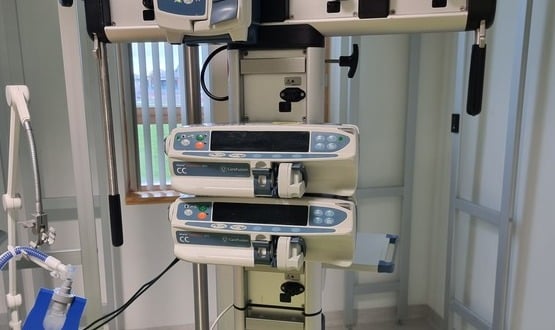Standard infusion pump software to go live at Alder Hey Children’s Hospital
- 10 June 2024

Peter White, chief nursing information officer at Alder Hey Children’s Hospital Trust tells Digital Health News about an ongoing project to create a standardised pediatric dataset for infusion pumps.
The trust aims go live with the standard infusion profiles in summer 2024, with integration work continuing to interface data from the pumps directly into Alder Hey’s Meditech electronic patient record (EPR) as part of a separate workstream.
Global med tech firm, BD provides the pumps, which are used for the administration of medicines over a period of time longer than five minutes.
Although they have been in use at Alder Hey since July 2023, they are currently used with weight-based dosing.
“The reason why the standard infusions work is so vital is that traditionally we used weight-based dosing which is bespoke for each patient.
“However, EPR systems really struggle to safely prescribe these ranges, whereas the standard infusions mean we can put safety measures in place to reduce the risk of over/under dosing patients,” explained White.
BD’s interface software, Alaris Communication Engine (ACE), enables the output from the infusion pumps to be shown in a central monitor on the ward and in the EPR.
“The ACE system connects directly to the pumps to ensure the most up-to-date profile available is installed, allowing the pharmacy to be more responsive to incidents and update drugs in a timely manner,” White explained.
All 400 pumps in the trust will be connected together by the system via WiFi or wired network. This also allows for review of the data in real time which is useful for investigations and audits.
“Developing standard infusions will adapt the limits to make them easier to translate to other trusts which administer infusions and are more easily ready by the EPR for prescribing,” White said.
The drugs will be split into weight bands, based on the patient’s weight for safety, which White said “has the benefit in the future of allowing pre-made syringes which reduce waste and allowing for better stock control”.
White added that the patients who most benefit from the use of infusion pumps include those who are post-operative or receiving critical or complex care.
Examples of the type of medicines used with infusion pumps include pain relief, sedation, blood pressure control and electrolyte replacement.
White, who is a member of the Digital Health CNIO Network Advisory Panel, said that the trust is going through the validation process for the pumps regionally and has “made progress setting the profiles into the infusion pumps” and providing staff training.
“We are also going to utilise the central monitoring system so that we can improve reporting for medication with added risk factors such as insulin or heparin, which is currently a manual process,” he added.




